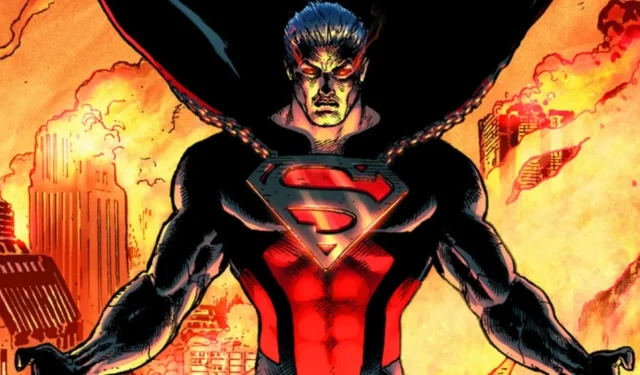
Warning: Spoilers for Black Lightning (2024) #2 ahead! Superman, often hailed as DC’s “Big Blue Boy Scout,”epitomizes the essence of heroism within the DC Universe. His unparalleled strength is complemented by a steadfast compassion that many admire. However, recent discussions suggest that Superman’s unwavering moral compass might not be as beneficial for the broader DC Universe as anticipated.
In the latest issue of Black Lightning, Anissa Pierce reflects on her father’s (Black Lightning) seemingly perfect decision-making abilities. The narrative juxtaposes this with Councilman Harriman’s fiery speech, where he denounces all metahumans except for the revered Superman. Such scenarios poignantly illustrate the inherent challenges posed by the lofty moral benchmarks set by figures like Superman and Black Lightning, which may inadvertently undermine public trust in other metahumans.
A Long-Standing Question: Is Superman Too Perfect?
This scrutiny of Superman’s almost unattainable goodness is not a novel concept. The debate took center stage in Zack Snyder’s 2013 film, Man of Steel, which presented a version of Superman with a more complex and darker personality. This portrayal culminated in a controversial climax where Superman takes the life of General Zod—an act that sparked significant debate regarding the very nature of heroism. Snyder’s interpretation arguably highlights the difficulties that arise from characters who seem untouchable in their moral superiority.
Interestingly, the frustrations expressed by Anissa and Harriman draw from psychological research on comparison. It is well-documented that individuals often evaluate their self-worth against perceived societal standards. When those standards are impossibly high, it may lead to feelings of inadequacy and frustration. Harriman’s critique illustrates this concept—Superman’s actions set an astronomical bar that he believes should not be lowered for any other hero.
The Impacts of Setting Unrealistic Heroic Standards
Facing the Consequences of Perfection
While it is beneficial to have heroes exemplifying strong ethical values, constant comparisons to their near-impeccable standards have tangible psychological ramifications. In a world filled with beings capable of extraordinary feats, acknowledging that simpler acts of kindness—like offering words of encouragement—also hold significant value can be challenging. When the superhero community continuously strives to meet these elevated expectations, the inevitable backlash can lead dedicated heroes, such as Anissa, into feelings of apathy or unrest, which further allows oppressive figures like Amanda Waller to gain power.
Superman represents an unyielding force for good within the DC Universe, but it is crucial to recognize that this emblematic figure is not without consequences. The circumstances depicted in Black Lightning #2 serve as a reminder that even the most vibrant inspirations can cast shadows. While Harriman may be operating with ulterior motives, his rhetoric still has significant repercussions. Likewise, Anissa’s hesitance to step up amidst her father’s seemingly flawless reputation deprives the world of another formidable hero.
Black Lightning (2024) #2 is now available from DC Comics.




Leave a Reply